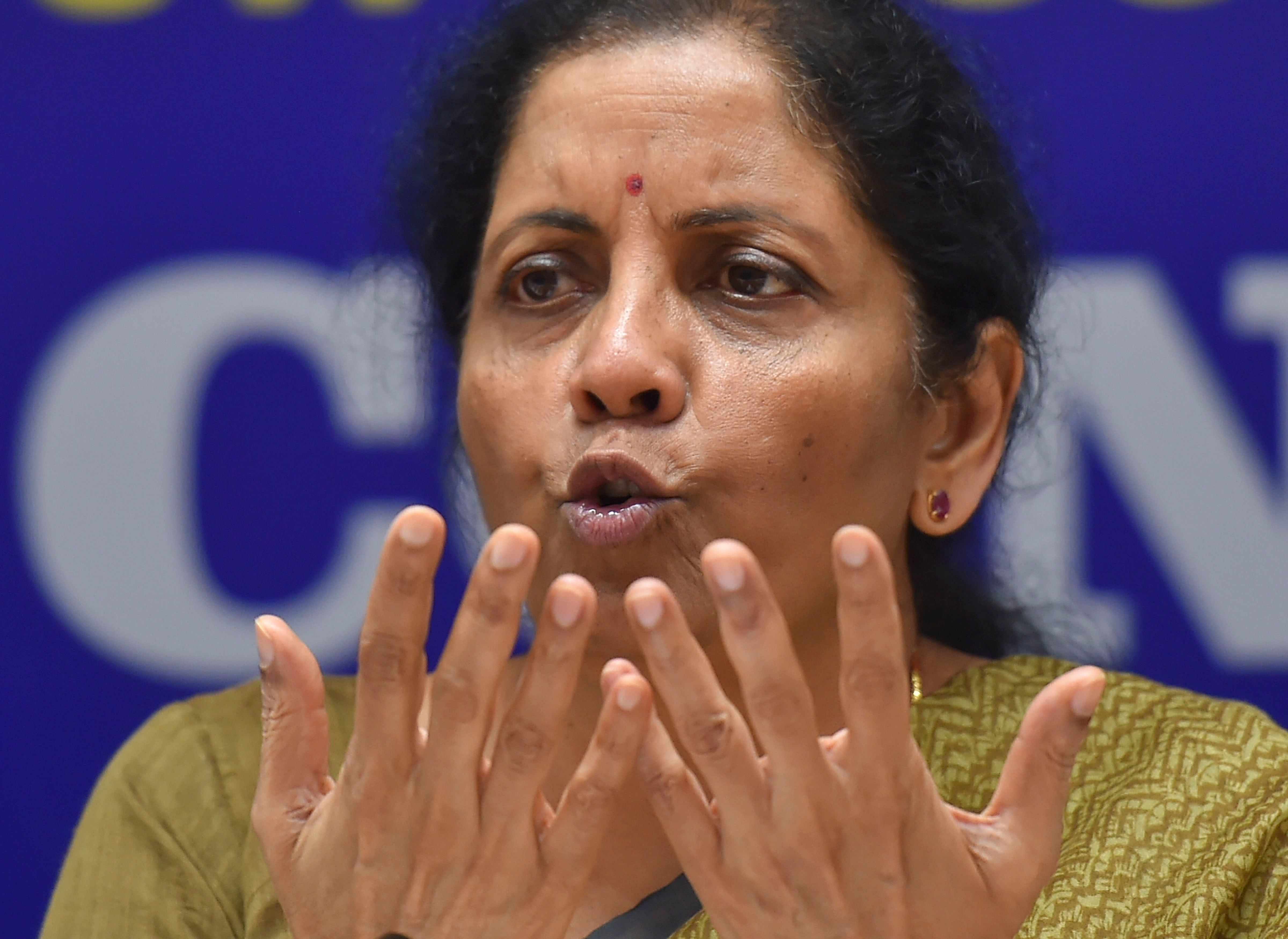
The Centre Friday unleashed a huge fiscal stimulus by announcing big cuts in corporate tax rates to push India's stuttering economy, a move that can boost investment by companies and bring down cost of goods for consumers, thereby giving a leg-up to the demand slump.
Announcing the steps that caught the street by surprise, Finance Minister Nirmala Sitharaman said the basic corporate tax rate will be cut to 22% from the current 30% for all existing domestic firms and to 15% from 25% for the those being set up after October 1. The effective tax rate for domestic companies will, however, be 25.17% inclusive of all surcharges and cess.
The step elicited immediate cheer from investors and the 30-share BSE Sensex saw a jump of over 1,000 points minutes after the announcement. The rupee too traded at the day's high of 71.01 per dollar immediately after the announcement.
“To promote growth, a new provision has been inserted in the Income Tax Act with effect from fiscal year 2019-20, which allows any domestic company to pay income tax at the rate of 22% subject to condition they will not avail any incentive or exemptions,” Finance Minister Nirmala Sitharaman said addressing a press conference in Goa.
Total revenue foregone for the reduction in corporate tax rate and other relief would be Rs 1.45 lakh crore per year, the finance minister said, adding an Ordinance to this effect had already been passed early Friday.
The new tax rates are among the lowest in South-east Asia, the minister said, hoping the tax buoyancy after the lower tax rates would bring more revenues.
The government also slashed minimum alternate tax (MAT) rate to 15% from the existing from 18.5%.
To stabilise the flow of funds into the capital markets, it said that the enhanced surcharge levied in the Budget shall not apply on capital gains on sale of security including derivatives held by FPIs. An enhanced surcharge will also not apply to capital gains arising on equity sale or equity-oriented funds liable to Securities Transaction Tax (STT) to stabilise flow of funds into capital markets
The government also expanded the scope of spending 2% profit on corporate social responsibility (CSR). It can now be spent on incubators funded by central/state governments, or any agency or PSU of central/state government, and can be used to make contributions to publicly funded universities. CSR violations shall also not to be treated as criminal offence and would be instead treated as civil liability.
“A major bonanza and path breaking reform for Corporate Tax Payers. ..The government has answered long standing demand of corporates. This would encourage competitiveness and also minimise tax cash outflows which would be ploughed back into the economy. It is a great move aiming to bring back the economy into sound position,” K R Sekar, Partner, Deloitte India, told DH.
Companies availing exemptions can opt to pay tax of 22% after the exemption period is over.
